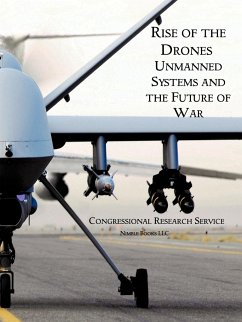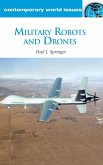Over the last decade, the number of unmanned systems and their applications has grown rapidly. So too has the number of operational, political, and legal questions associated with this technology. The growing demand for and reliance on unmanned systems has serious implications, both on and off the battlefield. As the United States is engaged in two wars abroad, unmanned systems, particularly unmanned aerial vehicles, have become a centerpiece of that war effort. In recent years, the Department of Defense's UAV inventory has rapidly grown in size, from 167 in 2002 to over seven thousand today. Last year, for the first time, the U.S. Air Force trained more unmanned pilots than traditional fighter pilots. Some express no doubt that unmanned systems have been a boost to U.S. war efforts in the Middle East and South Asia. CIA Director Leon Panetta said last May that "drone strikes are the only game in town in terms of confronting or trying to disrupt the al Qaeda leadership." Media reports over the last year that the top two leaders of the Pakistani Taliban were killed by drone strikes also support this argument. But some critics argue that drone strikes are unethical at best and counterproductive at worst. They point to the reportedly high rate of civilian casualties, which has been calculated by the New American Foundation to be around 32 percent, and argue that the strikes do more to stoke anti-Americanism than they do to weaken our enemies. A quick skim of any Pakistani newspaper provides some evidence to support this theory. This is particularly relevant in the era of counter-insurgency doctrine, a central tenet of which is, 'first, do no harm.' It also may be the case that we are fighting wars with modern technology under an antiquated set of laws. For example, if the United States uses unmanned weapons systems, does that require an official declaration of war or an authorization for the use of force?
Hinweis: Dieser Artikel kann nur an eine deutsche Lieferadresse ausgeliefert werden.
Hinweis: Dieser Artikel kann nur an eine deutsche Lieferadresse ausgeliefert werden.








